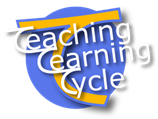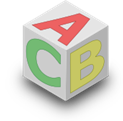Remote indigenous education is a complex process. But what Peppi school provides is a safe, welcoming, and rich educational environment. Students are engaged and the key to engagement is that the children can see that they are learning. Our Teaching and Learning Cycle (TLC), Applied Classroom Behaviour (ACB), and Literacy integration toolkit (Lit) programs form the core of a compassionate and comprehensive T-10 curriculum. We also use Talking Namba and Meaningful Maths which have been designed for the our student’s context.
But we also welcome older students who’d like an alternative and flexible pathway rather than leaving Peppi for boarding school.
We have a four-year subject cycle and adhere to our planning requirements especially the seasonal Indigenous Language and Culture ILC, use our ACB behaviour program Lit literacy guidelines, and our common pedagogy is documented in TLC (Teaching and Learning Cycle).

Peppimenarti School operates differently to many Australian government schools in that it is an English is an Additional Language or Dialect (EALD) school. This means that students come from a very different language background and cannot access mainstream curriculum.
English (ESL / EALD): English oracy is developed from the beginning of schooling but your literacy program should be guided by Literacy immersion toolkit (Lit) and Walking Talking Text (WTT) materials. The departments book Teaching Standard Australian English Speech Sounds to Student in the Northern Territory is your best guide to a SAE structured phonics program. Student progress is measured against the ESL (NTCF) band levels. Curriculum maps are available which show how all of these language components align.
Mathematics: Central to mathematics teaching is the Talking Namba resource which focuses on the key ideas in a bilingual context. Talking Namba is aligned to the Departments Essential Mathematics resources and also provides a rubric for assessment. See the Departments Numeracy Resources for ideas and assessment for the Measurement / Space and Probability / Statistics strands. We also subscribe to Meaningful Maths which is a suite of maths resources.
Other ACARA subjects: Other ACARA subjects are addressed at an appropriate age for grade level using a literacy focus. The WTT column planner used in conjunction with carefully selected factual texts is recommended for this.
SENIOR SECONDARY
The NT Certificate of Education and Training NTCET is mostly delivered via the South Australian curriculum. We offer the below five streams over two years so that students can succeed without leaving their homelands.
| PEPPIMENARTI SECONDARY SCHOOL UNITS | ||||
| Life and work | Stage 1 1st Aid and OHS | Stage 1 Work Experience | Stage 1 EALD | Stage 1 EALD |
| Cooking, Futures and Math. | Stage 1 Healthy food | Stage 1 Cakes and biscuits | Stage 1 Exploring Identities and Futures | Stage 1 Essential Mathematics |
| Creative and visual arts | Stage 1 Dance | Stage 1 Music | Stage 2 Painting | Stage 2 Media |
| Community and caring | Stage 1 Child-Studies | Stage 1 Beauty | Stage 2 Health | Stage 2 Aged care |
| Land and culture | Stage 1 Language | Stage 1 Bush food | Stage 2 Community history | Stage 2 Traditional land |
To complete their NTCET students must:
- Pass Exploring Identities and Futures (10 credits)
- Pass two units of English as an Additional Language (20 credits)
- Pass Essential Mathematics (10 credits)
- Pass six stage 2 subjects (60 credits)
- Pass four stage 1 subjects (40 Credits)
- Attempt or pass six more subjects (60 credits)
Each 10-credit subject takes approximately 100 hours of work. To achieve their certificate students will need to do 5 subjects per semester over 4 semesters.
All senior secondary subjects are student directed and assessed via student’s folio submission.
DATA PLAN
Due to the language barrier NAPLAN and PAT test are inaccessible to our students and the data created is unusable. So to track student progress we use the FELA and Dibells test for literacy and Talking Namba and NZ Math for numeracy. Literacy tests will be at the start of each semester and numeracy assessments at the end. All data is entered into SAIS and thus accessible via the Departments eDash data.
- FELA resources – FELA test – School Assessment
- Numeracy resources – Numeracy test – School Assessment
Associated cross school programs
– Numeracy Resources – Indigenous Language & Cultures – Social-Emotional Learning – Keeping Kids Learning –
Assessments
~ Reports for Parents ~ Primary report~ EAL/D ~ WRi ~ FELA ~ PM Benchmarks ~ NCCD ~






